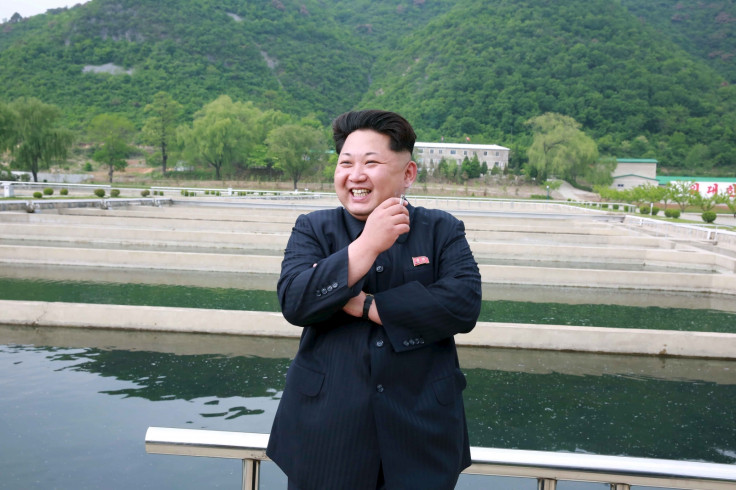North Korea: Lobster-rage Kim Jong-un 'purged military brass over rice rations cut'

Any dictator needs to keep its military content to sleep soundly at night and Kim Jong-un seems to be no exception.
Reports from the bordering South Korea have in fact suggested a recent purge of North Korea's top brass might be linked to the quantity of military food portions.
After the widely reported execution "by anti-aircraft gun" of defence minister Hyon Yong Chol, whose reported crime was falling asleep during a military drill, a number of top-ranking officials have also been killed or demoted, this time for cutting troops' rations, according the Chosun Ilbo, South Korea's largest daily.
The newspaper cited an unnamed source as saying that according to Seoul's intelligence reports, deputy armed forces minister So Hong-chan recently disappeared from the public eye.
He was last spotted in late March and was nowhere to be seen on 15 April when Kim visited the palace housing the embalmed bodies of his father and grandfather, an official event he would have normally attended.
The no show prompted the paper to say So and several other high-ranking officials close to Hyon have been purged.
"The source said one reason for the latest purges may be a failure by top brass to follow Kim's order to improve the living conditions of ordinary troops," the Chosun Ilbo wrote. "Kim ordered generals to feed their troops well, but instead they cut daily rations in a bid to boost rice reserves."
Birthday celebrations
The cut reportedly followed lavish celebrations for the birthdays of Kim's predecessors (the late Kim Jong-il and Kim Il-sung), which left the military's rice stocks severely depleted.
Reports from the hermit nation are impossible to confirm but from a quick scan of North Korea's official news reports, it is evident Pyongyang has put a lot of focus on its food output in recent weeks.
Of the last six English-written articles covering the young dictator's activities published by the hermit kingdom's official news agency, KCNA, five feature official visits to food production facilities: two fish farms, a fishery complex, a cattle and a terrapin farm.
Usually, such visits provide photo opportunities as a smiling Kim is pictured as he lauds the "advanced state" of the North Korean apparatus, surrounded by a number of officials taking notes.
We're concerned about seed scarcity and the low level rain and snowfall. All of these things are raising concerns about the winter harvest this year
The terrapin farm was instead apparently the scene of one of the leader's infamous outbursts of anger. The dictator reportedly lost his temper after learning of the "serious shortcomings" affecting the facility's capability to produce "tasty and nutritious terrapin", normally used in North Korea for soup, and lobsters.
"Recalling that the party sent fries of freshwater lobsters to the farm so that it might breed them and took necessary measures for it but it failed to complete a breeding ground though two years have passed since then, he strongly criticised the shortcoming of its officials as a manifestation of incompetence, outmoded way of thinking and irresponsible work style," KCNA wrote.
The reports came after North Korea, which has suffered two famines in the past 60 years, was hit by an unusually dry winter, which might have hardened its chronic malnutrition problems.
"We're concerned about seed scarcity and the low level rain and snowfall," John Aylieff, deputy Asia director at the UN's World Food Program, told the Washington Post in February. "All of these things are raising concerns about the winter harvest this year."
The winter harvest usually helps cover North Korean's food needs up to the start of the rice harvest season towards the end of the summer.
© Copyright IBTimes 2024. All rights reserved.






